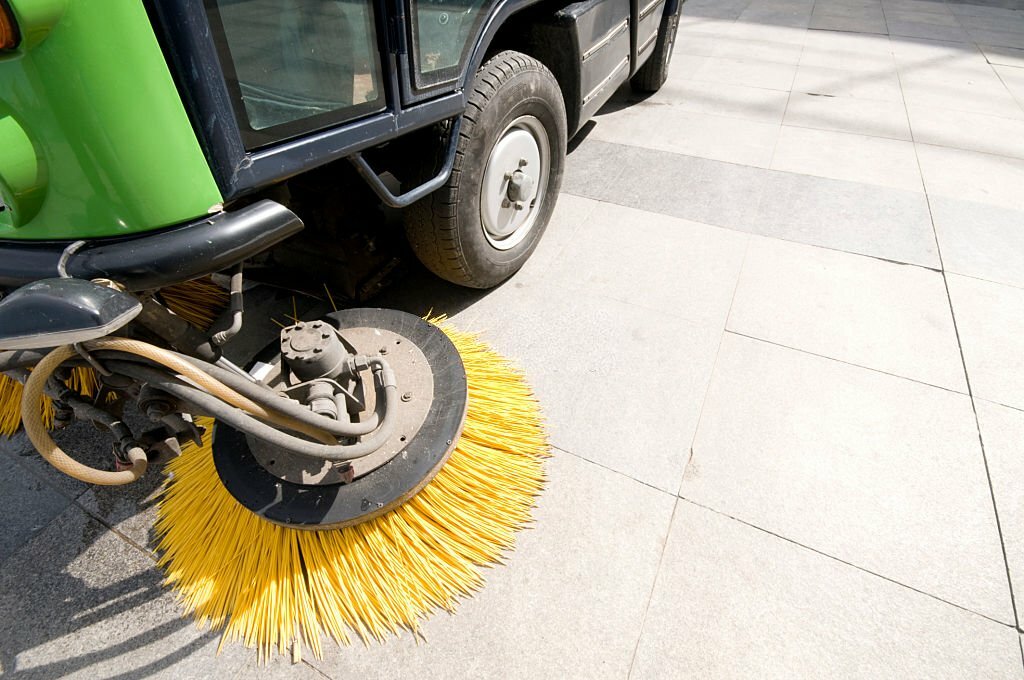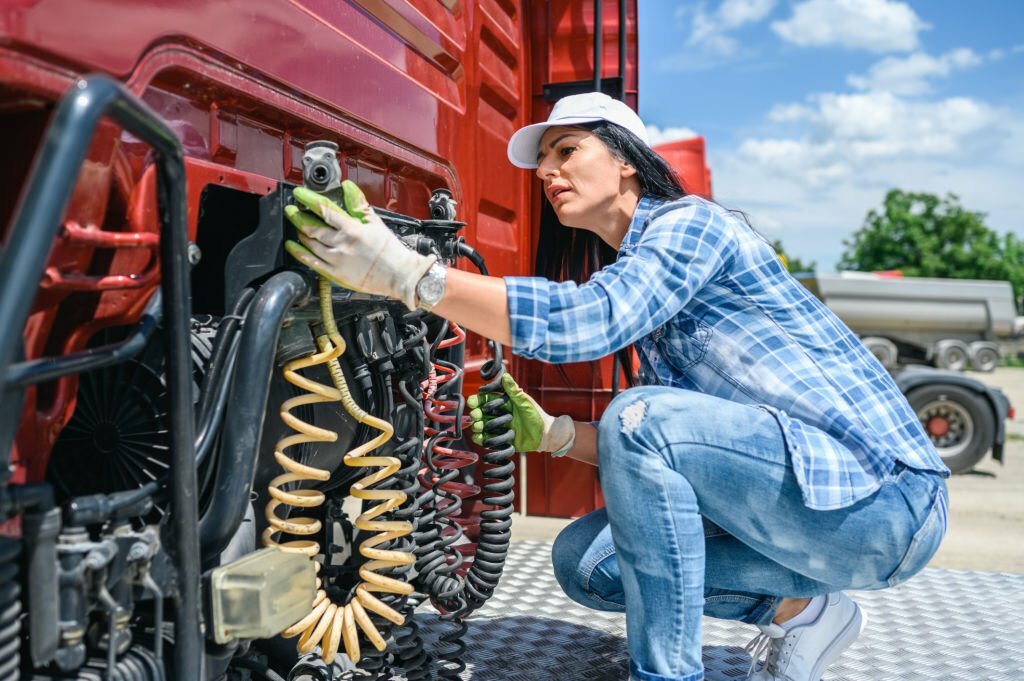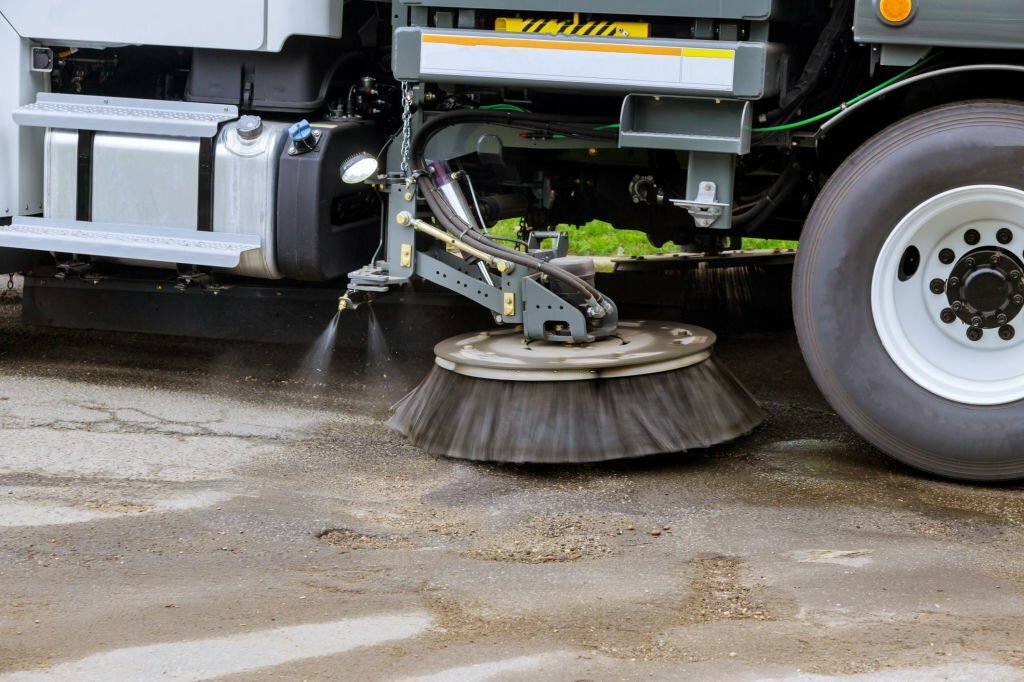In the dynamic world of heavy equipment industries, the vital role played by sweeper machines cannot be overstated. These machines are the unsung heroes that silently and efficiently ensure clean, safe, and productive working environments in construction sites, industrial facilities, and warehouses. However, the effectiveness of these powerful machines hinges on the expertise of the operators behind the controls. To unlock the full potential of sweeper machines and to prioritize the safety and efficiency of operations, specialized training programs have emerged. These programs are designed to equip individuals with the essential skills and knowledge required for operating sweeper machines in a variety of challenging industrial settings.
This exploration delves into the significance of these training programs, providing insights into the comprehensive training they offer. From understanding sweeper machine basics and safety protocols to mastering efficient sweeping techniques and equipment maintenance, these programs empower operators to become proficient custodians of clean, safe, and efficient working environments in the heavy equipment industries.
Understanding Sweeper Machine Basics

Sweeper machine training programs are comprehensive endeavors that begin with a fundamental understanding of the machine’s anatomy, operation, and maintenance. These programs ensure that operators acquire the knowledge and skills required to handle these powerful machines with confidence and expertise.
The first step in sweeper machine training involves a thorough exploration of the machine’s structure and functioning. Operators gain insights into the inner workings of the sweeper machine, including the mechanisms that drive its sweeping capabilities and control systems. They delve into the intricacies of the machine’s components, understanding how each part contributes to its overall operation. This foundational knowledge is then put into practice as operators learn to operate the machine’s control systems effectively. From understanding the nuances of the dashboard to mastering the control levers, operators become proficient in maneuvering the sweeper machine with precision. They also learn to navigate different settings and functions, ensuring that the machine is used to its maximum potential.
Furthermore, training programs include instruction on troubleshooting common issues that may arise during sweeper machine operation. Operators gain the skills to identify and address basic problems, ensuring minimal downtime and efficient use of the equipment. The initial stages of sweeper machine training programs provide a solid foundation for operators, equipping them with a comprehensive understanding of the machine’s structure, operation, and maintenance. This knowledge is fundamental for ensuring the optimal performance of these machines in heavy equipment industries.
Safety Protocols

In heavy equipment industries, safety is paramount, and sweeper machine training programs prioritize the well-being of operators and those working in their vicinity. These programs provide a comprehensive understanding of safety protocols, equipping operators with the knowledge and skills to identify potential hazards and implement safety measures effectively.
A key aspect of safety training for sweeper machine operators is the proper use of personal protective equipment (PPE). Operators learn the importance of donning PPE, such as helmets, gloves, and high-visibility vests, to shield themselves from potential hazards during operation. Understanding the machine’s safety features is another vital component of these training programs. Operators become proficient in recognizing and utilizing the built-in safety mechanisms of the sweeper machine. This knowledge helps prevent accidents and ensures that the machine operates safely.
Guidelines for operating the sweeper machine in various conditions are also emphasized. Sweeper machines encounter diverse environmental factors, from wet and slippery surfaces to uneven terrains. Operators are taught how to adapt their operating techniques to navigate these conditions safely and efficiently.
By instilling a deep understanding of safety, these training programs not only protect the well-being of operators but also contribute to the overall safety of the work environment. It ensures that sweeper machines are operated in a manner that minimizes the risk of accidents and injuries, making them a safer and more efficient asset in heavy equipment industries.
Efficient Sweeping Techniques

Sweeper machine training programs go beyond the basics and delve into the art of sweeping. They recognize that effective sweeping techniques are integral to optimizing the performance of these machines in heavy equipment industries.
Operators are trained in the art of sweeping, learning to employ strategic and efficient patterns that cover the maximum surface area with each pass. This not only saves time but also minimizes fuel and resource consumption, contributing to environmental sustainability. Moreover, operators gain an understanding of how to reduce dust emissions during the sweeping process. Dust can be a pervasive issue in heavy equipment environments, and knowing how to control and minimize it is crucial. Training programs cover the use of dust suppression systems and water spray mechanisms, enabling operators to maintain a cleaner and healthier atmosphere by preventing airborne dust particles.
Efficient debris removal is also a focus of these programs. Sweeping effectively involves not only the capture of dust but also the efficient removal of various types of debris from different surfaces. Whether it’s metal shards on a construction site or fine particles in an industrial facility, operators learn the nuances of debris removal to ensure a comprehensive clean-up.
In essence, these training programs elevate sweeping to an art form by equipping operators with the knowledge and techniques necessary to optimize patterns, reduce dust emissions, and efficiently remove debris from diverse surfaces. By mastering these skills, operators enhance the effectiveness of sweeper machines, making them invaluable assets in heavy equipment industries.
Preventative Maintenance

Maintenance is the linchpin of sweeper machine longevity, and training programs emphasize its vital role in keeping these machines in optimal working condition. Operators are provided with comprehensive guidance on routine maintenance tasks, ensuring that the machines perform at their peak and remain reliable assets in heavy equipment industries.
One essential aspect of maintenance covered in these programs is filter replacement. Filters play a crucial role in capturing dust and debris, and operators are taught how to identify the right time to change filters to maintain efficient performance. This proactive approach not only ensures cleaner air quality but also extends the life of critical machine components. Additionally, training programs address brush maintenance. Brushes are the workhorses of sweeper machines, and operators learn how to inspect, clean, and replace brushes when necessary. This knowledge ensures that the machine’s sweeping efficiency is consistently maintained.
Equipment inspections are also a fundamental part of maintenance training. Operators become proficient in performing routine inspections to identify potential issues before they escalate, minimizing downtime and costly repairs. By instilling the importance of maintenance, these training programs help operators become custodians of sweeper machines’ longevity. It ensures that the machines operate optimally, delivering reliable and efficient performance in heavy equipment industries.
Troubleshooting and Repairs

In the realm of heavy equipment industries, where time money, and efficiency are paramount, sweeper machine operators are equipped with more than just operational skills. They are prepared to diagnose common issues and perform minor field repairs, a skill set that can significantly reduce downtime and operational costs. Sweeper machine training programs emphasize the importance of operator troubleshooting. Operators are taught to recognize and diagnose common problems that may arise during machine operation. Whether it’s a mechanical issue, a blockage in the suction system, or an electrical malfunction, operators gain the expertise to pinpoint the root cause of the problem swiftly.
Furthermore, these programs provide training in making minor repairs in the field. This capability empowers operators to address issues on-site, minimizing the need for costly repairs and reducing downtime. Whether it’s replacing a worn brush, fixing a minor hydraulic leak, or troubleshooting an electrical component, these skills contribute to seamless operations and enhance cost-efficiency.
By nurturing these problem-solving and repair skills, sweeper machine operators become versatile assets in heavy equipment industries. They not only operate the machines effectively but also keep them running smoothly, ultimately contributing to a more efficient and cost-effective working environment.
In conclusion, mastering the sweep through specialized training programs for sweeper machine operators in heavy equipment industries is paramount. These programs equip operators with the knowledge and skills necessary to navigate the complexities of these powerful machines effectively. From understanding machine fundamentals and prioritizing safety to mastering efficient sweeping techniques and embracing maintenance and troubleshooting, these programs empower operators to excel in their roles.
Discover the key to operational excellence in heavy equipment industries through our comprehensive training programs for sweeper machine operators. Visit the Boom and Bucket website today to explore how mastering the sweep can transform your career and contribute to safer, cleaner, and more efficient working environments. Gain insights into the critical role these programs play in optimizing sweeper machine performance, enhancing safety, and reducing operational costs. Don’t miss this opportunity to elevate your skills and become a proficient custodian of these essential machines. Visit our website now to learn more!

